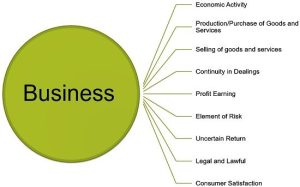ECO – 01 BUSINESS ORGANIZATION (BCA) Important Question
- Define the term ‘business’ and state its essential features.
- How is it different from the profession?
- What are the requisite features of the ideal form of business organization?
- Distinguish between ‘Entrepreneur ’ and ‘Promoter’.
- What do you mean by the cooperative form of organization? Explain its merits and limitations.
- What is a stock exchange? Explain the factors affecting prices in a stock exchange.
- How does advertisement differ from publicity?
- What is the advertisement and objective of advertising?
- Define ‘Advertisement Media’. State its different types and the requisites of an ideal medium.
- Channel of distribution used for industrial goods?
- Discuss the various function performed by wholesalers.
- What is the difference between Overdraft and Cash credit?
- What are Pledge and Hypotheciation?
- Explain the term Life Insurance and Fire Insurance.
- What do you mean by risk management? Describe briefly the insurance risks and the non-insurable risks.
- All business risks are not insurable.” In light of this statement, explain insurable risks.
- Explain the choice of mode of transport.
- What are the essentials of a sound transport system?
- What is a public enterprise? State the features and objectives of a public enterprise.
- What is a public corporation?
- What is a Government company?
- Define Public Utility Undertaking.
- Enumerate the broad aspects of price policy followed by public utilities.
- What is scarcity, and how does it impact economic decision-making?
- How do supply and demand determine market prices and quantities?
- What is the role of government in regulating markets?
- What is the concept of elasticity, and how does it affect the behaviour of buyers and sellers?
- How do firms make production and pricing decisions in different market structures such as perfect competition, monopoly, oligopoly, and monopolistic competition?
- What are the key macroeconomic variables, such as GDP, inflation, and unemployment, and how are they measured?
- What are the causes and consequences of business cycles, including recessions and expansions?
- What are the different theories of economic growth, and what are the key drivers of long-run economic growth?
- What is the role of monetary and fiscal policy in stabilizing the economy, and what are their limitations?
- How do international trade and finance affect the economy, and what are the benefits and costs of globalization?
- What is the difference between nominal and real GDP, and why is it important?
- How do changes in monetary policy, such as interest rate adjustments, affect aggregate demand and inflation?
- What is the role of the government in stabilizing the economy during a recession?
- What are the costs and benefits of inflation, and what are the critical determinants of its level?
- How do changes in exchange rates affect the balance of trade and the domestic economy?
- How do changes in production costs, such as labour or raw material prices, affect a firm’s supply curve?
- What are the different types of market failure, and how do they arise?

